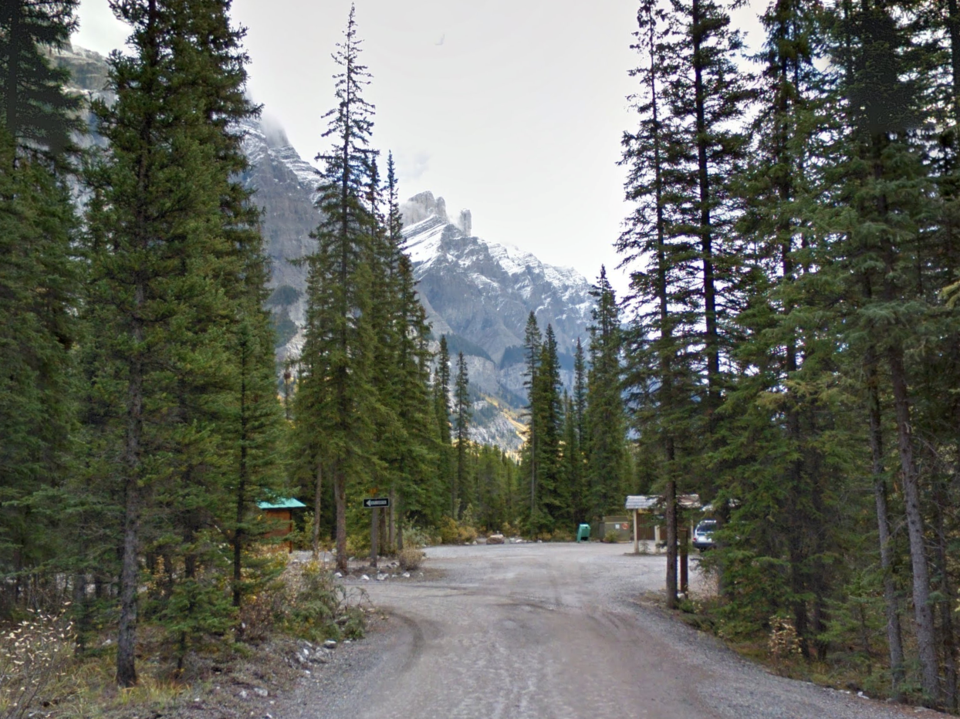BANFF – A wolf that attacked a camper in Banff National Park last week was in poor condition, according to Parks Canada.
DNA tests of the adult male wolf confirmed it was the same wolf that Parks Canada killed shortly after the incident on Aug. 9 and was likely nearing the end of its natural life cycle.
"Public safety remains our top priority and Parks Canada takes the protection of wildlife very seriously. In rare incidences such as these, the destruction of an individual animal is required to ensure public safety," wrote Lesley Matheson, public relations and communications officer for Parks Canada.
Jon Stuart-Smith, a wildlife management specialist with Parks Canada, said it was the first wolf attack to ever happen in a national park
"There have never been any attacks of people by wolves in a national park," said Steward-Smith, adding there have only been two reported attacks in provincial parks in Canada.
"It is an unfortunate incident, but it is obviously very rare given the frequency of these types of incidents in North America."
According to Parks Canada, it received a report of the attack around 1 a.m. on Aug. 9 at Rampart Creek Campground.
The man suffered minor injuries to both his forearms and was taken to Banff Mineral Springs Hospital and was released later that day. The three other family members inside the tent at the time of the incident were not hurt.
Parks said the wolf was sniffing and pawing around the tent before the attack happened.
"The camper heard that and then pushed on the fabric of the tent, trying to scare the animal away thinking it was a bear," said Gregg Walker, acting resource conservation manager for Yoho, Kootenay and Lake Louise.
"In so doing, the wolf grabbed his arm and tore the tent open. There was a struggle between the two for a short period of time."
Walker confirmed there were no significant wildlife attractants or food inside the tent, or in the immediate vicinity at the time. He said a nearby camper heard the struggle and helped scare the wolf away.
The wolf believed to be involved in the incident was located by a Parks Canada human-wildlife conflict specialists one kilometre south of the campground along Highway 93N an hour later and destroyed.
"He got out of his vehicle and tried to get the attention of the wolf and it started to approach him so given that behaviour he made the decision to destroy the animal with the thought that it was likely the animal involved in the incident," said Stuart-Smith.
"We collected evidence from the campsite and connected that to the genetics of the wolf that was destroyed and have confirmed that it was indeed the animal that was involved in the incident."
He said the adult male wolf was not known to wildlife managers prior to this, and there were no reports of a wolf frequenting the campground, or surrounding area, prior to the attack.
The campground was reopened to the public on Monday (Aug. 12).
Parks Canada continues to ask that all park users in Banff, Lake Louise, Yoho and Kootenay National Parks use safe camping practices, obey all camping regulations, keep food and garbage secure at all times, and report wildlife sightings to Banff Dispatch at 403-762-1473.
Visitors and residents to the region can help reduce the chances of a human-wildlife conflict by keeping dogs on leash, not approaching wildlife and carrying bear spray.
Rampart Creek campground has 50 camping sites and is approximately 88 kilometres north of Lake Louise and 11 kilometres north of the Saskatchewan River Crossing along the Icefields Parkway.


